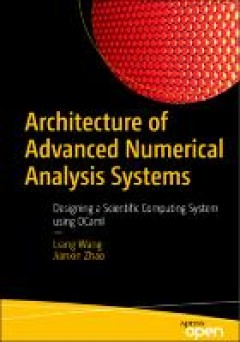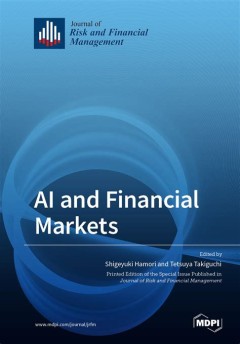Filter by

Beverage Consumption Habits around the World: Association with Total Water an…
Inadequate hydration is a public health issue that imposes a significant economic burden. In Spain, data of total water intake (TWI) are scarce. There is a clear need for a national study that quantifies water and beverage intakes and explores associations between the types of beverages and energy intakes
- Edition
- -
- ISBN/ISSN
- 9783038426356
- Collation
- XII, 292
- Series Title
- -
- Call Number
- -

Between Imagined Communities and Communities of Practice - Participation, Ter…
- Edition
- -
- ISBN/ISSN
- 9783863952051
- Collation
- -
- Series Title
- -
- Call Number
- -
- Edition
- -
- ISBN/ISSN
- 9783863952051
- Collation
- -
- Series Title
- -
- Call Number
- -

Argentina's Economic Reforms of the 1990s in Contemporary and Historical Pers…
Why has Argentina suffered so much political and economic instability? How could Argentina, once one of the wealthiest countries in the world, failed to meet its potential over decades? What lessons can we take from Argentina's successes and failures? Argentina’s economy is - irresistibly - fascinating. Argentina's economic history - its crises and its triumphs cannot be explained in purel…
- Edition
- -
- ISBN/ISSN
- 9781317364672
- Collation
- oer.unej.ac.id
- Series Title
- Europa Perspectives: Emerging Economies,
- Call Number
- -

Areal Convergence in Eastern Central European Languages and Beyond
This book assembles contributions dealing with language contact and areal linguistics. The goal of the book is to investigate linguistic convergence in Europe with a strong focus on the languages of Eastern Central Europe which show many remarkable similarities. The focus is put on a methodical and empirical component in the investigation of two or more languages in the context of possible lang…
- Edition
- -
- ISBN/ISSN
- 9783631806043
- Collation
- oer.unej.ac.id
- Series Title
- Linguistik International,
- Call Number
- -

Architecture of Advanced Numerical Analysis Systems
This unique open access book applies the functional OCaml programming language to numerical or computational weighted data science, engineering, and scientific applications. This book is based on the authors' first-hand experience building and maintaining Owl, an OCaml-based numerical computing library. You'll first learn the various components in a modern numerical computation library. Then, y…
- Edition
- -
- ISBN/ISSN
- 9781484288535
- Collation
- oer.unej.ac.id
- Series Title
- -
- Call Number
- -

Biodegradation Technology of Organic and Inorganic Pollutants
Bioremediation technologies for environments contaminated by organic and inorganic pollutants are a major focus of researchers and scientists worldwide. The chemical control of agricultural pests and advocacy for sustainable agriculture have led to the development of new paradigms in environmental remediation. This book covers recent advances in the bioremediation technology of organic and inor…
- Edition
- -
- ISBN/ISSN
- 9781839688966
- Collation
- 494
- Series Title
- -
- Call Number
- -

Biodegradation and Bioremediation of Polluted Systems: New Advances and Techn…
This book contains a collection of research works focused on the biodegradation of different types of pollutants, both in water and solids. The book is divided in three major sections: A) Biodegradation of organic pollutants in solids and wastewater, B) Biodegradation of complex pollutants, and C) Novel technologies in biodegradation and bioremediation.
- Edition
- -
- ISBN/ISSN
- 9789535122388
- Collation
- 178
- Series Title
- -
- Call Number
- -

Biocontrol of Plant Diseases: Antagonist Microorganisms, Biostimulants, Induc…
Biocontrol of plant diseases is considered one of the most important and current challenges of our society due to the need to look for eco-friendly alternatives to chemicals. Thus, research towards the biological control sensu lato [antagonist microorganisms, biostimulants, Induced Resistance (IR)] of plant diseases is an urgent demand for the agro-food sector of the Euroregion as well as for o…
- Edition
- -
- ISBN/ISSN
- 9783036586908
- Collation
- 222
- Series Title
- -
- Call Number
- -

AI and Financial Markets
Artificial intelligence (AI) is regarded as the science and technology for producing an intelligent machine, particularly, an intelligent computer program. Machine learning is an approach to realizing AI comprising a collection of statistical algorithms, of which deep learning is one such example. Due to the rapid development of computer technology, AI has been actively explored for a variety o…
- Edition
- -
- ISBN/ISSN
- 9783039362257
- Collation
- 230 hlm; ill., lamp.,
- Series Title
- -
- Call Number
- -

A Guide to Sustainable Corporate Responsibility : From Theory to Action
- Edition
- -
- ISBN/ISSN
- 978-3-030-88203-7
- Collation
- -
- Series Title
- -
- Call Number
- -
- Edition
- -
- ISBN/ISSN
- 978-3-030-88203-7
- Collation
- -
- Series Title
- -
- Call Number
- -
 Computer Science, Information & General Works
Computer Science, Information & General Works  Philosophy & Psychology
Philosophy & Psychology  Religion
Religion  Social Sciences
Social Sciences  Language
Language  Pure Science
Pure Science  Applied Sciences
Applied Sciences  Art & Recreation
Art & Recreation  Literature
Literature  History & Geography
History & Geography